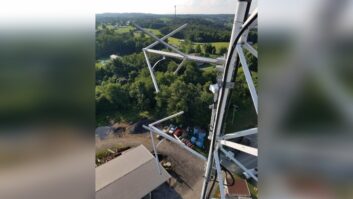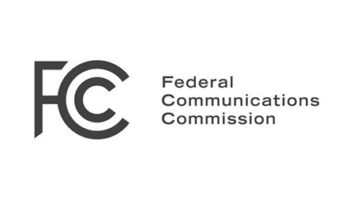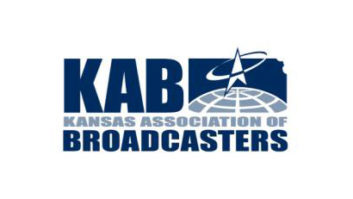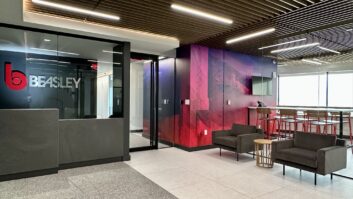This story has been updated; see note at bottom.
An FM translator in Gulfport, Miss., has had its license rescinded by the FCC Media Bureau.
Powell Meredith Communications had asked for authority for the NCE translator to remain silent. But the commission has decided that the broadcaster didn’t build it as authorized and failed to satisfy a condition of its license.
It is a case involving the FCC policy that was put in place seven years ago to discourage abusive translator practices. It states that a licensee must operate continuously for the first year and that silence during that time creates a “rebuttable presumption” of evidence of unlicensable, temporary construction.
It’s also a case in which the commission says Powell Meredith changed its story about when it was off the air, operated the antenna at a site different from the one on its CP, and put its antenna on an RV.
The licensee in turn argued, among other things, that the commission had singled it out for disparate treatment; that the Media Bureau has no authority to place a presumption on its license; that presumptions are contrary to the concept of “innocent until proven guilty”; and that PMC can’t get a fair review anyway because the bureau engages in “racial profiling” and dislikes PMC’s sole principal, Amy Meredith, because she is a minority.
Timeline
PMC held a construction permit for the translator at 101.9 MHz. In July of last year, it filed a license application stating that it had finished building at the location on the CP and referencing an antenna structure registration number and coordinates of a tower owned by Pinnacle LLC.
The Media Bureau granted the license in September, requiring continuous operation for the first year and establishing the “rebuttable presumption,” a standard condition since 2015.
But in November, PMC requested special temporary authority to remain silent; it said the reason was technical but didn’t provide further explanation.
In January 2022, responding to an informal FCC request for more information, PMC wrote that flooding from Hurricane Ida had damaged the transmitter in August, after which the translator had returned to the air within a few days, but that it had stopped broadcasting again in November due to another unspecified problem.
In February, the Media Bureau issued a letter of inquiry demanding answers to several specific questions about the whole situation.
In response, PMC raised several challenges.
Among them it said that the Media Bureau had singled PMC out for disparate treatment by issuing the letter of inquiry. It also said that only courts of equity can use rebuttable presumptions so the bureau had no authority to place one on its license, and it said presumptions are outdated, speculative, draconian and contrary to the concept of “innocent until proven guilty.”
[See Our Business and Law Page]
According to the FCC, PMC acknowledged in its response that it hadn’t constructed in accordance with its CP or at the site on its license. It did not use the authorized tower owned by Pinnacle but built, instead, approximately 30 yards away on an amateur radio tower in an RV park.
PMC argued that the construction was not temporary because the ham tower was on a shed affixed to the ground, and received power through a permanent outlet shared with an RV. It said it had paid the RV owner $300 to use the location for three months and intended to find another location after hurricane season, though it apparently didn’t file applications for this or another site.
It also told the FCC that the translator had operated at the RV site for about six weeks while its license application was pending but that it went silent on Aug. 30 of last year, before the FCC granted the license application, because Ida had damaged the transmitter, ham tower and RV.
The commission says PMC did not provide requested photographs or other documentation of that; PMC in turn said the RV and its owner have moved away and that the engineer who constructed did not accept payment because he was acting only “as a friend.”
PMC’s response clarified that the translator did not return to the air in the fall of 2021 as it stated in January but that, after ceasing to broadcast in August, it didn’t return to air except for a six-hour test in March 2022 using an antenna on a pole at an unidentified location. It said that its test showed that this translator can’t operate without causing interference to WLMG(FM) in New Orleans on the same frequency, so the translator remains off air.
[See a related YouTube video.]
PMC also told the FCC it had had no intent to deceive in providing an incorrect report and blamed its principal’s confusion after illness with coronavirus.
Outcome
The FCC now has rejected all of PMC’s procedural challenges.
“There is nothing about the license condition or LOI that is disparate, discriminatory or beyond the bureau’s authority,” it wrote, adding that it places the same condition on all broadcast licenses.
It noted that PMC’s deadline for seeking to reject that condition was 30 days after the grant of its license. “The bureau issued the LOI simply because PMC stopped broadcasting within the first year of operation and the bureau was giving PMC the opportunity to rebut the presumption of temporary construction. PMC cites no precedent for its argument that government agencies cannot use rebuttable presumptions. The commission has long used such presumptions.”
So the Media Bureau now has ruled that the constructed facilities were not licensable because PMC had provided false information in its license application. It rescinded the license for W270CS in Gulfport and declared the associated CP forfeit.
It added that “Although PMC emphasizes that the RV site was only 30 yards from the authorized site, the commission’s rules require bureau approval prior to making any changes in an FM translator’s location,” with limited exceptions that are not applicable in the case.
The unauthorized construction alone makes the facilities unlicensable; but if PMC had disclosed the use of the RV site earlier, the application would have been dismissed anyway. The commission said several problems with the use of the RV site provide a separate basis to reach the same decision.
Other arguments
The commission made only brief reference to several other arguments that had been advanced by PMC.
It said the principle of “innocent until proven guilty” is irrelevant because that concept applies in the field of criminal law and not in this case.
PMC made other allegations. Among them: that the FCC engages in racial profiling, that the Media Bureau provided incorrect information about the station to PMC’s member of Congress, that a third-party permit trafficker forged the principal’s name on modification applications and involved the permit in bankruptcy proceedings, and that the letter of inquiry’s requirement that PMC support its response with an affidavit under penalty of perjury arguably violates the Bill of Rights. (You can read more in the FCC’s detailed case description.)
But the bureau said those are all beyond the scope of the inquiry. “We note briefly that the allegation of racial profiling is unsupported by any showing and that PMC has not connected its constitutional concerns to the facts of this case.”
Ed. Note: The original version of this story reported that the translator was to rebroadcast WWOZ in New Orleans. That is indeed what the translator license states. However WWOZ General Manager Beth Arroyo Utterback says the station has no affiliation with the translator and is not aware of why WWOZ is listed as its primary.












